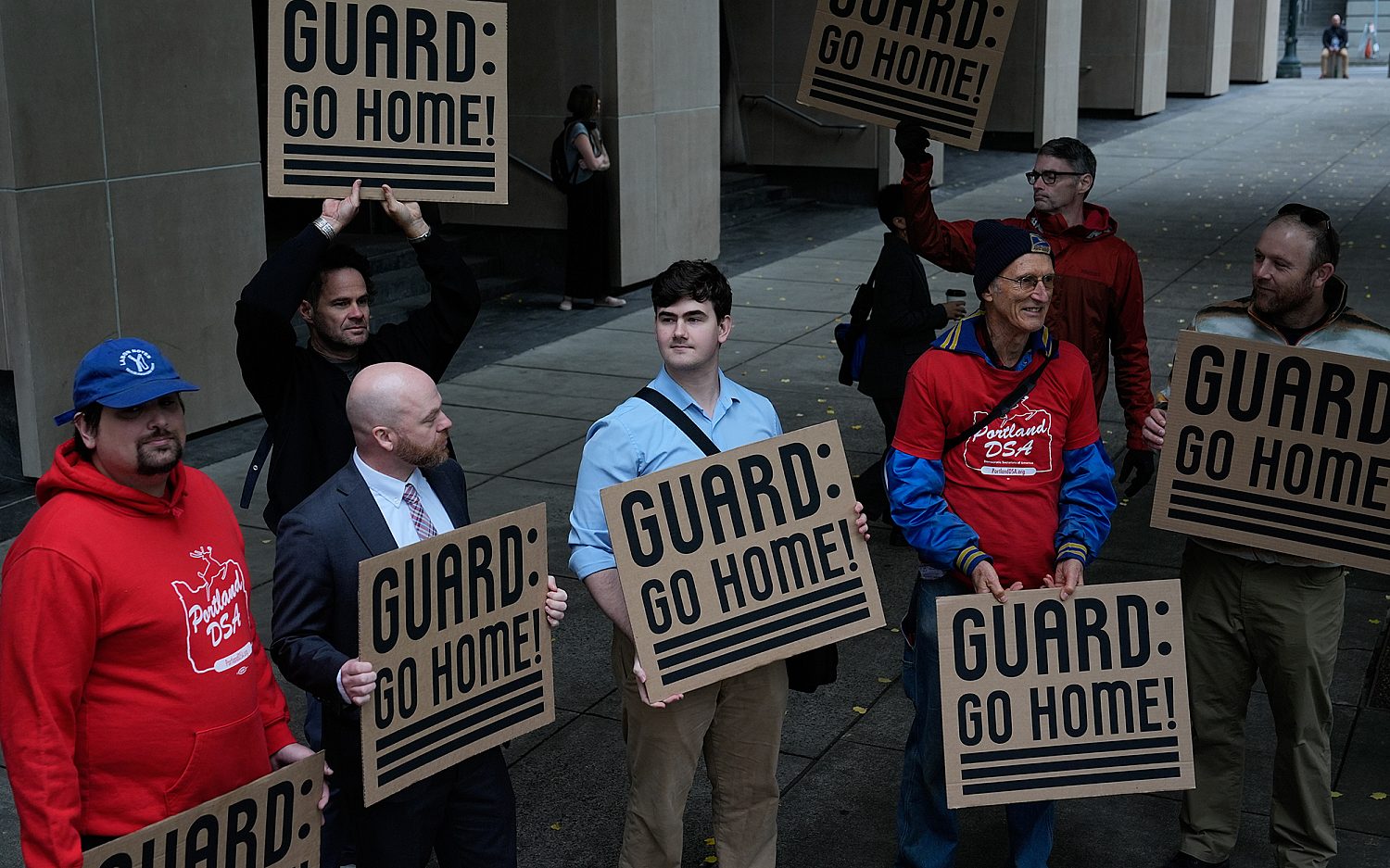Ballot Boxing: What's next for anti-Trump Republicans?
Back room discussions of a third-party candidacy may fizzle as Donald Trump nearly reaches the delegate threshold for the GOP nomination
Welcome to Ballot Boxing, WORLD’s political roundup of news and views from the presidential campaign trail.
The morning after Sen. Ted Cruz, R-Texas, stunned supporters by dropping his presidential bid in the wake of a resounding loss in the Indiana primary, reality television star Donald Trump looked poised to clinch the Republican nomination, and conservatives began asking a flurry of questions:
Will a third-party candidate emerge? Could such a candidate beat either Trump or Democratic hopeful Hillary Clinton? Or would a third-party candidate divide the conservative vote and effectively hand the presidency to Clinton?
A more pressing question: Is it even possible to mount a third-party bid this late in the process?
A third-party candidate would need to get on the ballot in at least some states, but that’s a high hurdle now. For example, in Texas, the deadline for a third-party candidate to appear on that state’s ballot is Monday. The requirement: 80,000 signatures of Texas voters who didn’t vote in either party’s primary.
Though it wouldn’t be impossible for a group to launch a third-party bid—or an even more daunting write-in campaign—it would be a formidable task and require a highly organized team of advisers steeped in party rules and plugged into grassroots networks in most if not all states.
So far, it doesn’t appear such a group exists.
A conclave of conservative leaders reportedly will confer today to discuss the remaining options, but conservative radio host Erick Erickson—a staunch Trump critic—told Yahoo News he wasn’t hopeful: “My guess is the consensus is going to be, we can’t mobilize a third party to do much good.”
Others may disagree and attempt a last-ditch effort to give conservative voters an alternative, but another concern looms: If a large segment of Republicans choose not to vote for Trump, will they sit out the election entirely?
With a slate of U.S. House and Senate seats up for grabs, Republicans face the urgent task of pushing voter turnout to determine the congressional power that will provide the balance for whichever presidential candidate wins in November.
While some social conservatives and evangelicals support Trump, John Stemberger of the Florida Family Policy Council told me earlier this year that a handful of socially conservative organizations likely wouldn’t mount the aggressive voter-turnout efforts they had in the past if Trump is the nominee.
But for social conservatives concerned about issues like abortion and religious liberty, congressional elections may be the most important line of offense and defense no matter who wins the presidency.
Clinton has made her pro-abortion, pro-gay marriage platform clear. For Trump, the issues bring tepid response. He says he loathes the idea of abortion but won’t disavow federally funded Planned Parenthood, the nation’s largest abortion provider.
On marriage, Trump says the Supreme Court’s decision legalizing same-sex marriage is settled law, and he doesn’t show much vigor for the next battlefield facing conservatives: religious liberty for Christians who resist efforts to compel them to participate in activities that violate their conscience—like florists or photographers facing steep fines for refusing to service same-sex weddings.
(On a similar front, when the North Carolina legislature passed a law allowing private business owners to maintain a policy of sex-segregated restrooms, Trump criticized the legislation.)
Trump did tell the Christian Broadcasting Network in February he wants to “give power back to the church.” But he was speaking of laws prohibiting tax-exempt organizations from endorsing political candidates: “I know people who want to endorse me but they’re afraid to endorse anybody because they don’t want to get political … so essentially they’ve taken a lot of power away from the church.”
Of course, this is a misunderstanding of the church and power. The church doesn’t derive power from the government. Any true power in the church comes from Christ and is concentrated in the power of the gospel to change people’s hearts and lives.
Indeed, God has often used government oppression to increase spiritual power in churches facing persecution. The Apostle Paul assured Christians in Philippi that God had used his chains for good:
“I want you to know, brothers, that what has happened to me has really served to advance the gospel, so it has become known throughout the whole imperial guard and to all the rest that my imprisonment is for Christ. And most of the brothers, having become confident in the Lord by my imprisonment are much more bold to speak the word without fear” (Philippians 1:12-14).
It’s still right and critical for Christians to press for the cause of religious liberty during a tumultuous election season (and to advocate on other important issues as well), but it’s also helpful to remember Paul’s words to another set of Christians in the first century:
“For by [Christ], all things were created, in heaven and on earth, visible and invisible, whether thrones or dominions or rulers or authorities—all things were created through him and for him. And he is before all things, and in him all things hold together.”
An actual newsletter worth subscribing to instead of just a collection of links. —Adam
Sign up to receive The Sift email newsletter each weekday morning for the latest headlines from WORLD’s breaking news team.





Please wait while we load the latest comments...
Comments
Please register, subscribe, or log in to comment on this article.